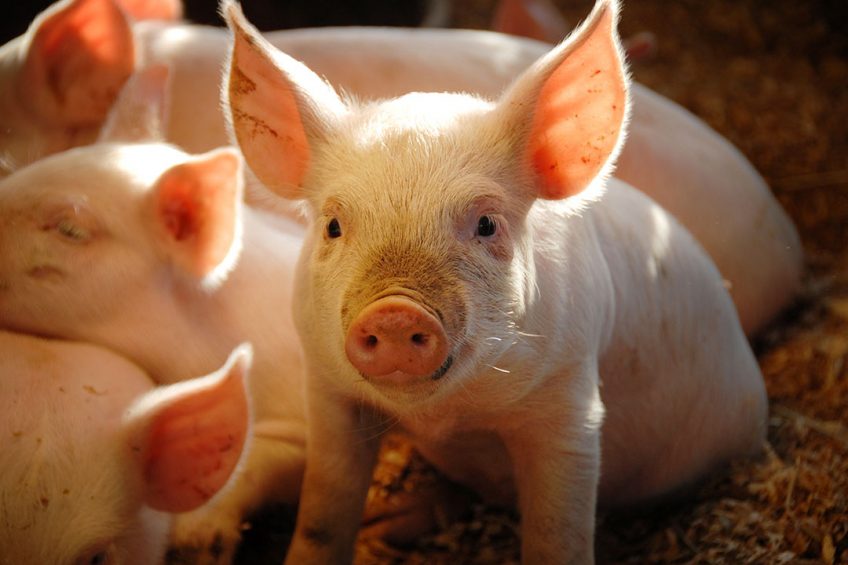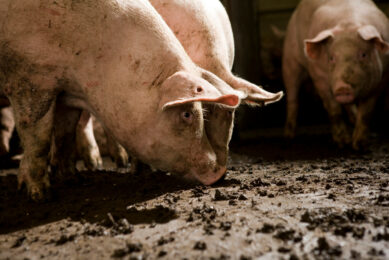MCG’s: In-feed gut support

Nowadays, the gastrointestinal tract is no longer seen as an organ for merely digestion and conversion of feed into its basic components and absorption of its nutrients. The gut, and its health, is increasingly correlated with general health, welfare and growth performances of meat-producing animals.
Caring for an optimal gut health balance is considered as the key factor to ensure good animal production performances resulting in optimal financial earnings for the farm managers. However managing gut health is complex, and not coordinated by one sole parameter. It is a delicate balance between the host (genetics), the intestinal microbiota, (intestinal) environment, provided diet and stress challenges, etc. Farm management, good hygiene practices and an extra-balanced nutritional feed composition are tools to enable an optimal balance for the gut to thrive. Non-antibiotic in-feed specialities can assist in the latter. In 2003, medium-chain glycerides (MCG) were put forward in scientific literature as a promising alternative for in-feed antibiotics to protect gastrointestinal health and the immunity of animals. Over the last 15 years this aspect has been fine-tuned, confirmed and validated in trials, on farm level and documented in literature extensively.
Direct microbiota balancing effect
Medium-chain glycerides, esters of glycerol and medium-chain fatty acids (C6-C12), provide antibacterial medium-chain fatty acids throughout the gastrointestinal tract (GIT) of the animal. They assist the animal in amongst other things, minimising the risk of proliferation and overgrowth of non-beneficial bacteria. In contrast to organic acids, medium-chain fatty acids, especially caproic acid (C6), are particularly active towards gram-negative bacteria like Salmonella and E. coli. Several validated antibacterial effects are worth mentioning. The salmonella-growth-inhibiting effect of medium-chain fatty acids has been confirmed in in vitro studies. Lower Salmonella colonisation of the caecum and internal organs of chicks upon feed supplementation with C6 has also been documented in an in vivo broiler trial.
In vitro digestion simulation studies with pig flora of the small intestine as inoculum, was run at different pH’s simulating gastric and duodenal environment. Elimination of E. coli during this incubation test was reported when incubated in the presence of the smallest medium-chain fatty acids (C6,C8). Whereas the control (without medium-chain component) the E. coli count increased to at least 10^5 cfu/g. A similar digestion simulation study showed a reduction of streptococci upon presence of MCG and a sparing of the present beneficial lactobacilli. In addition, supplementing C8 to feed for 10-day old broiler chicks, orally challenged with Campylobacter jejuni reported reduced caecal Gram-Campylobacter content in the feed.
Indirect microbiota balancing effect
Belgian scientific researchers demonstrated that very low (sub-MIC) concentrations of medium-chain fatty acids (C6,C8) are able to decrease virulence gene expression of Salmonella Typhimurium and inhibit invasion of Salmonella in porcine intestinal epithelial cells. Invasion is known to be of importance for intestinal colonisation of the pathogen and induction of inflammation in the animal; lower invasion thus implies a healthier gut. Interestingly, Belgian researchers observed in vivo effects with coated products and not with uncoated products. Thus slow-release is preferred to direct-availability. Getting active compounds right were they are the most effective in the animal must be assured for optimal effect. The medium-glyceride form of MCT 6/8 product provides this effect. Lipases synthesised by the animal work on the glyceride, ensuring slow release of the medium-chain fatty acids throughout the GIT, with maximum presence in the small intestine.
Reported effects on intestinal health
Human medicine literature reports that hexanoate (C6) and octanoate (C8) also serve as substrates for metabolisation by the colonic epithelium. This is similar to butyrate (C4), which is known for this. One could state that C6 and C8 assist in supporting the intestine integrity.
Medium-chain glycerides (more specifically MCT 6/8) has protective effects in the small intestine of weaned piglets. Comparing piglets fed an AGP+ feed and an antibiotic-free diet with MCT 6/8 for several weeks, piglets were injected with E. coli lipopolysaccharides (LPS) and saline. MCT 6/8 was able to alleviate the intestinal injury provoked by LPS. The LPS-challenge reduced levels of both jejunal and ileal villi as opposed to the saline injection. For the MCT 6/8 fed piglets, higher villi where observed, compared to the AGP fed piglets, see Figure 1. MCT 6/8 fed animals challenged with LPS had higher serum IgA, more jejunal IgA-positive plasma cell and goblet cells compared to AGP fed piglets, so MCT 6/8 can be proposed as an in-feed gut support for post-weaning piglets.
In vivo performance validation
The above mentioned effects on gut health can have an impact on production parameters and disease challenge of the animals. This is validated for medium-chain glycerides based on caproic and caprylic acid (MCT 6/8) by Aveve Biochem. Several broiler and piglet trials have shown a reduction of FCR and/or improvement of growth, see Figure 2. Reduced mortality in broilers is registered, and a similar reduction of mortality in rabbits was documented also.
The global effect of MCT 6/8 on Salmonella was assessed in a commercial pig production unit. The finishing farm of about 400 animals was selected for the presence of Salmonella pressure. A control period of one finishing round was followed by a test period during which MCT 6/8 was added on top of the standard feed of the farm and supplied to all finishing pigs on the farm. An improvement of the Salmonella status of the farm was noticeable during the trial period compared to the control period, as well as compared to earlier data of Salmonella status on the farm. The Salmonella prevalence in manure of the pigs increased towards the end of the control period. During the MCT 6/8 supplementation, lower Salmonella prevalence was observed in the pig manure at slaughter age. The same tendency was noticeable with respect to the analysed serology (lower S/P-titre).
All these findings indicate that medium-chain glycerides, more specifically MCT 6/8, are a helping hand towards optimal animal performances, especially in AGP-free feeds.
References available on request
Author: Goedele Buyens, Aveve Biochem











